At today’s Angelus Francis sent out an appeal for peace in the Holy Land
At today’s Angelus Francis sent out an appeal for peace in the Holy Land
“No more war, war destroys everything. Let us not be overcome by evil or allow violence and hatred to prevail over dialogue and reconciliation.” The Pope’s meeting of prayer for peace in the Holy Land was not in vain. “The memory of last June 8th meeting with Patriarch Bartholomew and Presidents Peres and Abbas, is still fresh in my mind. Together we invoked the gift of peace and listened to the call to break the spiral of violence and hatred,” the Pope said. For some, this gathering took place in vain. But, in fact, “prayer helps prevent us from being overcome by evil or allow violence and hatred to prevail over dialogue and reconciliation.” This was the concerned appeal the Pope sent out today, calling for an end to the Israeli-Palestinian conflict which has flared up again. The conflict that is raging in Gaza is bloodying Jesus’ homeland and the Pope, who has put the geographical and existential peripheries at the centre of his pontificate, becomes a spokesman for the calls for peace being sent out by “all men of goodwill.”
Francis’ appeal for an end to war extends beyond the walls of the Catholic Church, expressing the suffering of those who have been wounded by the escalating violence in the Middle East. “I urge all interested parties and all those who have political responsibilities on a local and international level, to be generous in your prayers and efforts to put an end to all hostility and bring about a much longed for peace, for the good of everyone,” the Pope said. “I anxiously appeal to you to pray persistently for peace in the Holy Land in light of the tragic events of recent days. I invite everyone to join together in prayer: let us all pray together in silence.”
“Now Lord, – the Pope called out, his voice filled with emotion – “You help us! You give us peace, You teach us peace, You guide us towards peace. Open our eyes and our hearts and give us the courage to say: no more war, war destroys everything. Instil in us the courage to build peace through concrete gestures. Give us a willingness to hear the cries of our people who are asking us to transform our weapons into instruments of peace, our fears into trust and our tensions into forgiveness.”
In the summer too we should go to mass and hear the word of Jesus, the Pope urged faithful after explaining the Parable of the Sower, the first of Christ’s parables in time. “When Jesus speaks to the people he uses many parables: a language that everyone can understand, with images from nature and day-to-day experiences. The first of these parables is an introduction to the ones that follow: it is the Parable of the Sower who generously spreads his seed on all kinds of ground. The real protagonist of this parable is the seed itself, which produces more or less fruit depending on the soil it has fallen on. The first three soils are infertile.”
“This parable – the Pope said – speaks to each and every one of us today, just as it did to Jesus’ audience two thousand years ago. It reminds us that we are the soil onto which the Lord tirelessly throws the seed of his Word and love. How do we receive him? What is the state of our heart? What soil does can it be likened to? : a road, stony ground, a thorn bush? It is up to us to turn ourselves into fertile ground that is free from thorns and stones, that is ploughed and cultivated with care so that it can bear good fruits for us and our brothers and sisters. The good seed of the Gospel is sown at every Holy Mass, in a different way each time, it is served in the soup kitchen God’s Word: a seed that is to be received, looked after and lived.”
“It is important to take part in Sunday mass, even in the summer months, to enlighten and strengthen us along our path,” Francis said. We should also take care in choosing the words we use: these can inspire “courage” but they can also cause “depression”.
The Pope started with the Gospel passage which describes Jesus preaching on the banks of the Sea of Galilee. “A huge crowd gathers, so Jesus gets into a boat, goes a little further out onto the water and preaches from there.”
The Pope explained the Parable of the Sower saying: “In this case, Jesus does not simply present the parable he explains it to his disciples too. The seed which falls on the road, represents those who heard the Word but dismiss it; so the evil one comes and snatches away what was sown in their heart. Evil does not want the seed of the Gospel to grow in people’s hearts. This is the first metaphor. The second is the seed that falls on the rocks, forms no roots and so it withers away; this represents those who hear the word, but only accept it shallowly; when the going gets tough these people lose heart. The third case is the seed that falls among the thorn bushes: Jesus explains that these are the people who hear the Word but the worries of this life and the deceitfulness of wealth choke the word, making it unfruitful. Finally, the sower’s seed falls on fertile ground and this represents those who hear the Word, embrace it, nurture it and understand it and so it bears fruit. The Virgin Mary is a prefect example of this.”


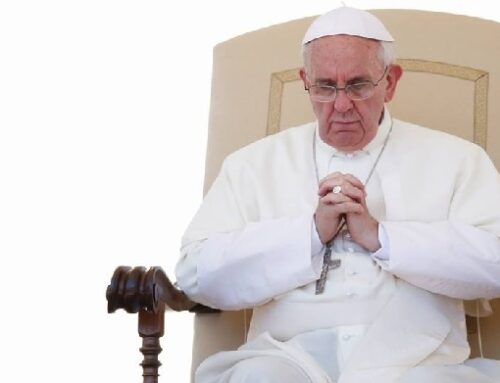
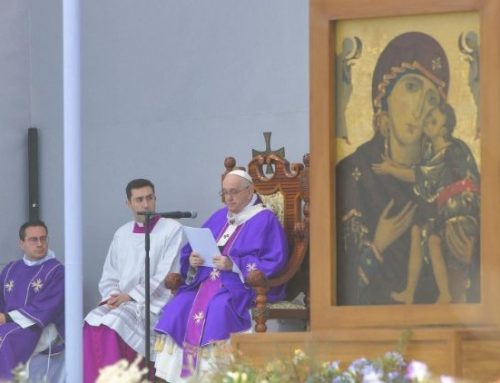
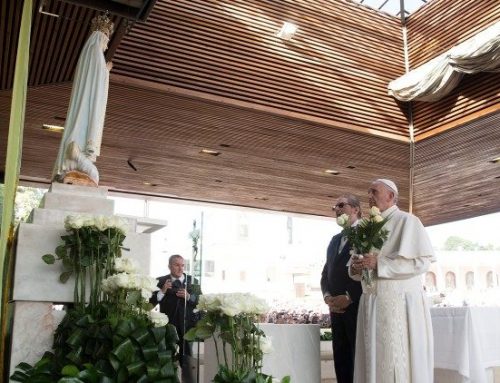
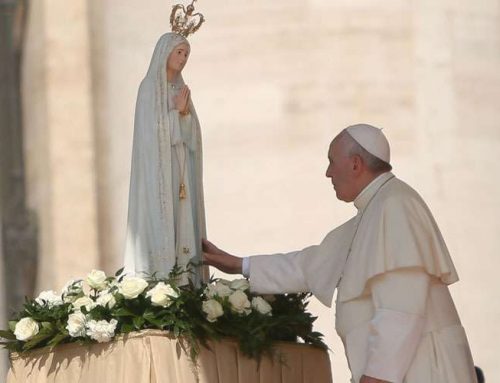
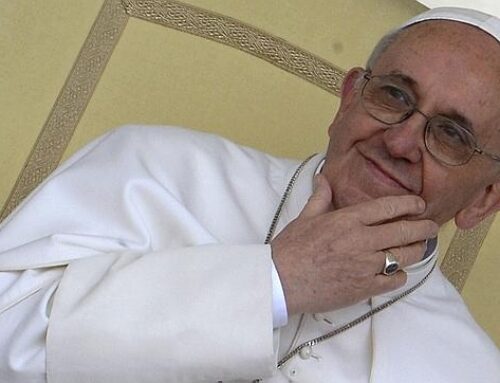
Leave A Comment
You must be logged in to post a comment.